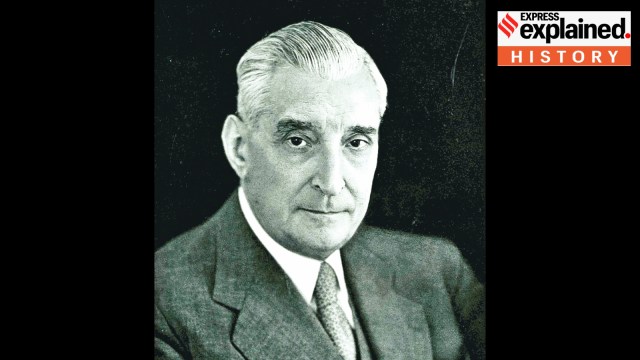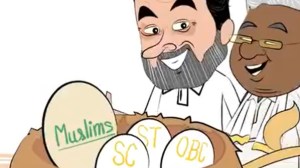- India
- International
50 yrs of portugal’s Carnation Revolution: How Europe’s longest dictatorship was overthrown
Antonio Oliveira Salazar ruled Portugal from 1932 to 1968, but the regime lasted for a another six years under his successor Marcelo Caetano, finally crumbling on April 25, 1974.
 Antonio Salazar left office in 1968. Wikimedia Commons
Antonio Salazar left office in 1968. Wikimedia CommonsThousands spilt on to the streets on Thursday (April 25) to celebrate the 50th anniversary of Portugal’s ‘Carnation Revolution’ that toppled the longest fascist dictatorship in Europe and ushered in democracy in the country. Antonio Oliveira Salazar ruled Portugal from 1932 to 1968, but the regime lasted for another six years under his successor Marcelo Caetano, finally crumbling on April 25, 1974.
Prof turned prime minister
A professor of political economy at the University of Coimbra, Salazar became Portugal’s Finance Minister in 1928. Under him, the financially stressed country made major progress — within a year, Salazar balanced the budget and stabilised Portugal’s currency.
He was appointed as Prime Minister of Portugal by the then President and military dictator Antonio Oscar de Fragoso Carmona in 1932, and within a year managed to concentrate political power with himself. In 1933, Salazar established the Estado Novo (literally, “New State”) — a conservative, corporatist, and nationalist regime ostensibly built on the values of Portugal’s traditional Catholic faith, and with the purpose of maintaining the Portuguese empire, most importantly in Africa.
From 1934 to 1965, Salazar won 100% of all valid votes in Portugal’s National Assembly elections, and ruled with an iron fist.
Revolution, decolonisation
The almost bloodless revolution was conducted by a group of junior army officers who wanted democracy, and to put an end to long-running wars against independence movements in the African colonies of Angola, Mozambique, and Guinea-Bissau.

They regarded those wars, which were killing thousands of young Portuguese conscripts, as unjust and unwinnable, especially given the rapid dismantling of all major European empires. The military coup by the “April’s Captains” group touched off rapid decolonisation, ending more than five centuries of Portuguese empire in Africa.
Far Right’s Salazar affection
Lisbon University political scientist Antonio Costa Pinto told Reuters that while most Portuguese are proud of the April 25 revolution, the recent surge in support for the populist, anti-immigration Chega party is the “elephant in the room”. “Chega attracts those who have a revisionist view of history with the idea that colonialism and the empire were not bad, and that the glorious Portuguese past and its symbols should be valued,” Costa Pinto said.
A study published on Friday by Lisbon’s Institute of Social Sciences and research university ISCTE found that 23% of respondents felt that if current political leaders followed the “ideals” of Salazar, Portugal might “regain its greatness”. And Chega itself makes frequent public use of Salazar’s motto “God, patriotism and family”, to which the party has added “work”.
Founded in 2019, Chega is the third largest party in Portugal, having quadrupled its cohort of lawmakers to 50 in March’s election. Chega has capitalised on the housing crisis unleashed by steadily rising rents as well as low wages, sagging health care and cases of alleged corruption involving the mainstream parties in Western Europe’s poorest country.
With inputs from Reuters
More Explained
EXPRESS OPINION
May 07: Latest News
- 01
- 02
- 03
- 04
- 05






























